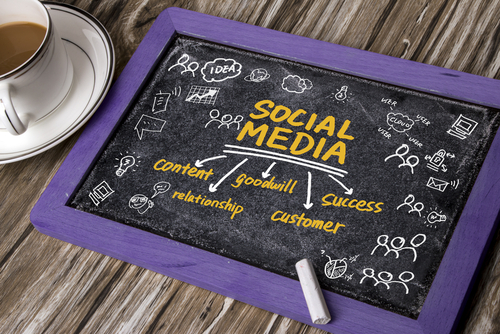5 Surprising Stats about What People Consider Good Customer Service
Unless you’ve gained a reputation as an industry leader or were a first-mover, then you should know that having a great product/service is just half of the game won. Customer service can make or break your small business in multiple ways. From not knowing how to handle an angry client to reps that don’t understand your core message, the experience you deliver to your customers is just as important as the product you’ve developed.
You might think that mastering your word choice, tone, and the various ways of saying “thank you” is more than enough to delight your customers. But, in practice, delighting and engaging a customer isn’t as easy as you might think. There are several counterintuitive practices that can impact how your customers feel about your business. What actually works doesn’t always follow what most entrepreneurs would assume.
This article will present you five surprising studies about what people expect out of good customer service.
- Good News First vs. Bad News First
“I have some good news and bad news. Which one do you want to hear first?”
You probably are pretty familiar with this good news-bad news approach. People use it regularly to reduce the impact of the message they are about to deliver. But, as cliché-ique as it might sound, studies have shown that it can make a different. The order you choose to share a piece of information can alter the way your customers feel and act.
Scientists at the UC-Riversied experimented with different ways of delivering news to subjects and analyzed their responses and behavior.
Their findings were truly fascinating. According to the experiment, people who were delivered the bad news first were more likely to feel better about the information while those who were given the bad news last felt more motivated to take action.
Most small business owners want their customers to feel happy, so it’s a good idea to start with the bad news. But, if you want them to take action, then start with the good news.
- Why People Stop Doing Business with You
Do you know what is the main reason customers stop doing business with a company
It’s has nothing to do with your prices or the competition. According to a survey performed by RightNow, the main reason people stop doing business with a company is bad customer service. The data is staggering. The survey showed that 82% of the people questioned said that they have left a business because of a bad customer service experience.
Good customer service, on the other hand, not only that it keeps your customers happy, but can also help you strengthen your reputation. Studies have shown that happy customers share their experience with an average of nine people. More than that, happy customers are more likely to become repeat customers, and they are ten times cheaper to nurture than finding new ones.
- The Most Important Factor that Increases Loyalty
People don’t notice good service because that’s what they expect. The surprises are what they notice and remember. That’s not to say that you shouldn’t go the extra mile to ensure that your customers are happy. Delighting your customers is a great way to grow your small business’s reputation.
But, there’s a more effective way to increase the loyalty of your customers: make them work less.
After surveying more than 75,000 customers, the Customer Contact Council found that the most effective way of increasing loyalty is reducing the amount of work a customer has to do to solve a problem.
What can you do about this?
That’s easy. If a customer has to do something to fix a problem they are having with your product, do it for them. For instance, if they need to fill out a form to update their account, make the update for them.
More often than not, people are asked to do a lot of extra work to solve a problem, such as sending an email, calling another number, filling a form, etc. By reducing the amount of work your customers have to do, not only will you save them tons of time, but you will also delight and surprise them.
- Faster Isn’t Always Better
Ask any customer service rep and they will tell you that the faster a customer gets help, the happier they will be. And that’s generally true.
But, as studies show, there are other factors that can have a greater impact on customer satisfaction than speed. According to one survey by Gallup, people who were offered a quick response to their problems were six times more likely to engage with the company. On the other hand, people who were offered a friendly service were nine times more likely to be engaged with the company.
Although speed is an important factor, it is far less important than having reps who can deliver friendly and competent services. So, rather than focusing on quick delivery, invest more in making your customer service representatives more engaged, attentive, and empathetic.
- …Except on Social Media
While speed isn’t a definitive customer service factor via phone or email, things change when it comes to social media. According to one study, 42% of customers expect a response on social media within one hour while 32% of them think they should receive feedback within 30 minutes. More than that, customers don’t care if it’s nighttime or the weekend. 57% of them expect the same response time regardless of the time or day.
And here’s a truly surprising stat: according to one study, more customers would recommend a company that provides a fast but inefficient response than would recommend a company that offers a slow but effective solution.
Simply put social media customers care more about how fast you are than how effective you are.
In conclusion, while poor customer service can ruin your reputation, delivering great customer care can help build loyalty, improve engagement, reduce dissatisfaction, and boost revenue.








Leave A Comment